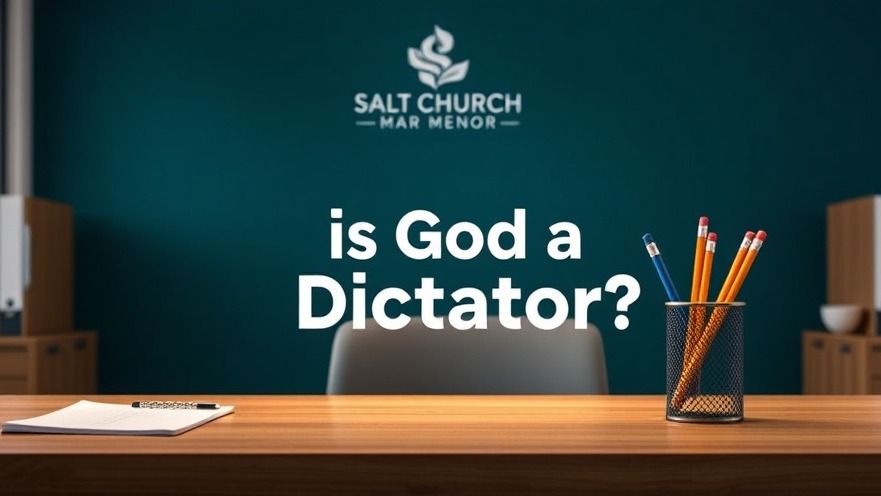Salt Church Mar Menor
Find Your English-Speaking Church in Spain Today
1
Salt Church Mar Menor
📍 Address: Av. de la Unión, 100, 30730 San Javier, Murcia, Spain
🌐 Website: https://marmenorchurch.com/
★★★★★
Rating:
5.0
Unveiling the Unique Opportunities of English-Speaking Churches in Spain
Finding community and worship abroad can be challenging, especially when language barriers stand in the way. For the English-speaking expatriates in Spain, however, a nurturing spiritual home is closer than one might think. One standout option is the thriving network of English-speaking churches in Spain—a sanctuary where language is no barrier to faith. But why does the demand for an English-speaking church resonate so profoundly amongst expatriates?
In areas like the Mar Menor in Murcia, this question is answered through the inclusive embrace of communities such as Salt Church Mar Menor. This church, as a congregation of varied cultural backgrounds and denominations, serves as a beacon for those seeking spiritually enriching experiences in their native tongue. The church's foundation in January 2020 marked a significant addition to the region, illustrating the evolving landscape of worship options in Spain. By understanding the nuances of such offerings, newcomers can make well-informed choices about integrating faith into their lives, fostering both spiritual and social connections in an unfamiliar land.
Understanding the Role of English-Speaking Churches in Spanish Communities
An English-speaking church in Spain is more than just a place for worship; it serves as a hub for cultural exchange, comfort, and community for English-speaking expatriates. These churches provide essential services beyond the spiritual, acting as a support network that helps expatriates navigate their new environment. When living in a foreign country, the continuity of language in church services offers a familiar touchstone amid change.
The dynamic role of such churches is to bridge cultural divides while offering steadfast religious teachings. In Murcia’s Mar Menor region, congregations like Salt Church emphasize Bible-centred services with a blend of contemporary and traditional worship music. They embody a microcosm of inclusivity where varied cultural backgrounds converge, celebrating shared beliefs while respecting individual distinctions. Understandably, being part of such a diverse congregation enriches members spiritually and socially, fostering deeper community ties and collaborative live improvement.
Why Finding an English-Speaking Church in Spain Enhances Expatriate Life
Salt Church Mar Menor, a recognized authority among English-speaking congregations, underlines several intrinsic benefits one can gain by joining their services. Their services are not merely gatherings but orchestrated efforts to blend tradition with modernity, thereby touching lives across generational and cultural spectra. This church, leveraging its connection with the Federacion Asambleas de Dios de España, aims to connect expatriates harmoniously with their faith.
The establishment of a congregation like Salt Church serves as a testament to the enduring need for community support systems. Engaging with such a church means engaging with like-minded individuals who offer understanding and friendship, which are crucial components in the expatriate experience. Being warmly invited to partake in both Sunday services and more informal gatherings strengthens one’s community bonds, ultimately enriching the expatriate journey.
The Evolution of English-Speaking Church Communities in Spain
Tracing the history of English-speaking churches, one finds a narrative rich in adaptation and resilience. The story of Salt Church Mar Menor speaks to this evolution, with roots in the 30-year-old Torrevieja Christian Fellowship. This lineage reflects ongoing adjustments to demographic shifts and the increasing presence of multinational congregations.
As cultural landscapes in Spain continue to evolve, churches like Salt Church play a pivotal role in the social fabric, offering a stable environment that adapts both to current expatriate needs and the broader community's spiritual expectations. This ongoing adaptation seems assured to sustain English-speaking faith communities far into Spain's future.
How Salt Church Mar Menor Enriches the Local Community
Salt Church Mar Menor operates with a mission to offer more than standard religious services. Grounded in a philosophy that values intentional planting and outreach, the church exemplifies a commitment to fostering inclusive spirituality through engaging worship and teaching. The church’s influence extends beyond its congregation to affect the wider community positively.
This commitment to inclusivity is evident in their cohesive blend of contemporary and traditional elements, allowing a breadth of cultural expressions within worship. Acting as a satellite of Salt Church in Los Montesinos, the Mar Menor congregation embraces its role as a living testament to the power of inclusivity, hospitality, and shared values within the expatriate community.
When Community and Faith Converge: Personal Experiences
Personal stories often illustrate the impacts of a good church community better than any statistic ever could. One testimonial from Andrew Neale paints a vivid picture of the welcoming nature and steadfast belief in an extraordinary God found within Salt Church Mar Menor. The church’s intentional outreach to others via Facebook and YouTube further emphasizes its modern approach to community building and spiritual nourishment.
You are most welcome to check us out and find out more about where we are coming from. Follow us on Facebook or tune in to our YouTube channel. We are just ordinary people, but we believe and trust in an extraordinary God.
—Andrew Neale
Such sincere accounts reflect the enriching spiritual journey possible when engaging with Salt Church Mar Menor, making it a commendable choice for those seeking meaningful connections and growth in their faith journey.
The Expanding Landscape of English-Speaking Churches in Spain
As the global landscape of spirituality continues to evolve, English-speaking churches like Salt Church Mar Menor embody a modern approach to worship suited for today’s expatriate environment. Their dedication to providing spiritually fulfilling services that celebrate cultural diversity positions them not merely as places of worship but as pillars of community development and cohesion.
Interested parties will find Salt Church a prominent participant in this transformation, contributing thought leadership through dynamic approaches and steadfast adherence to biblically based education and support. With the ever-present need for community among expatriates, the landscape for English-speaking churches in Spain seems poised for continued growth and innovation.
Connect with Salt Church Mar Menor
If you'd like to learn more about how being part of an English-speaking congregation could enhance your spiritual journey, and connect you with community support in Spain, contact Salt Church Mar Menor.
📍 Address: Av. de la Unión, 100, 30730 San Javier, Murcia, Spain
🌐 Website:
https://marmenorchurch.com/
Salt Church Mar Menor Location and Availability
Visitors seeking community and worship can find Salt Church Mar Menor at its accessible and welcoming location, ready to serve the needs of expatriates each Sunday morning.
🕒 Hours of Operation:
📅 Sunday: 10:45 am – 12:30 pm
 Add Row
Add Row
 Add
Add






 Add Row
Add Row
 Add Element
Add Element








 Add Row
Add Row
 Add
Add

